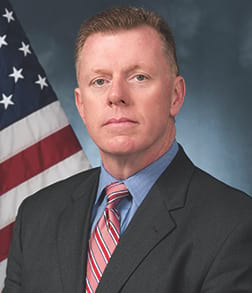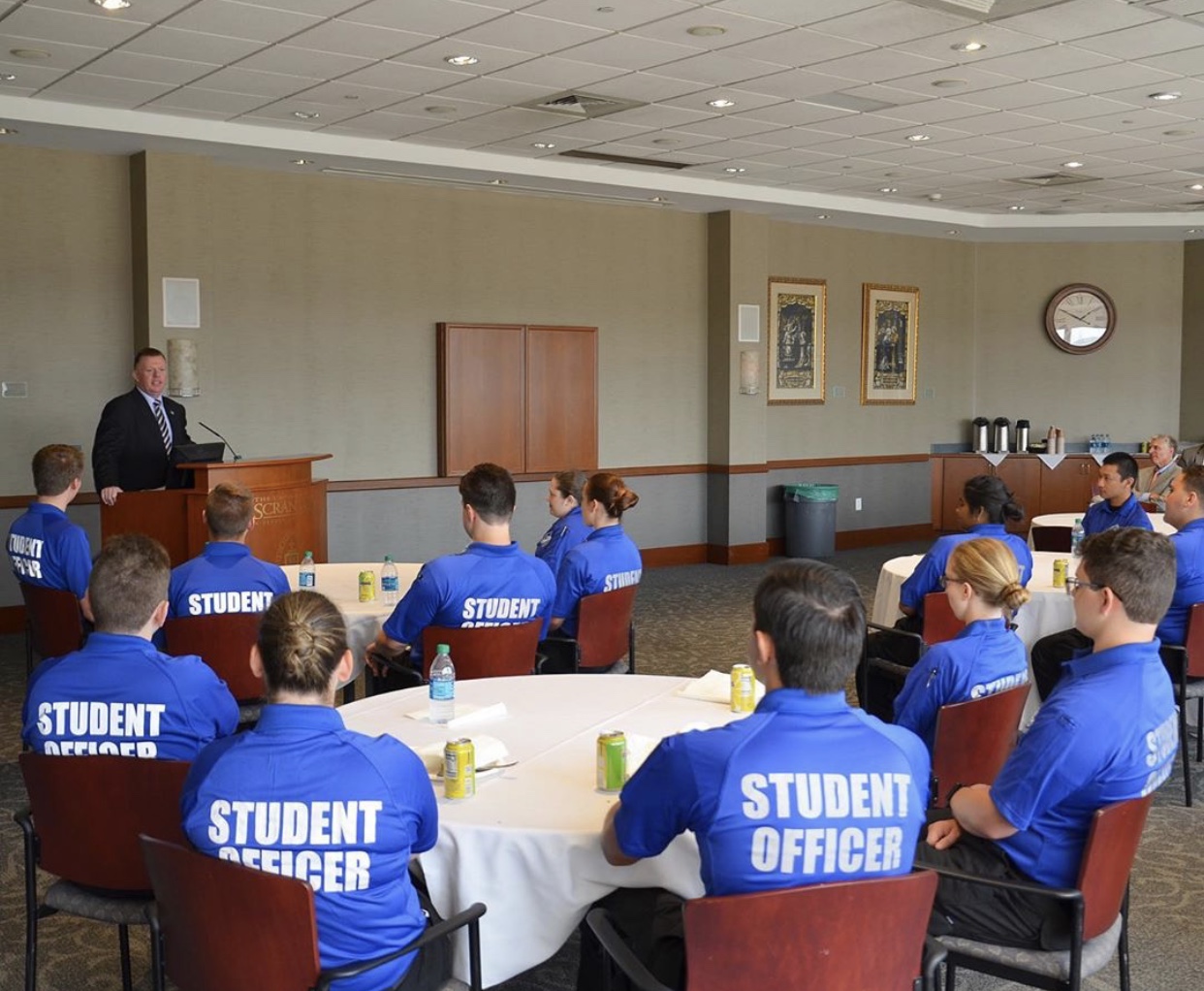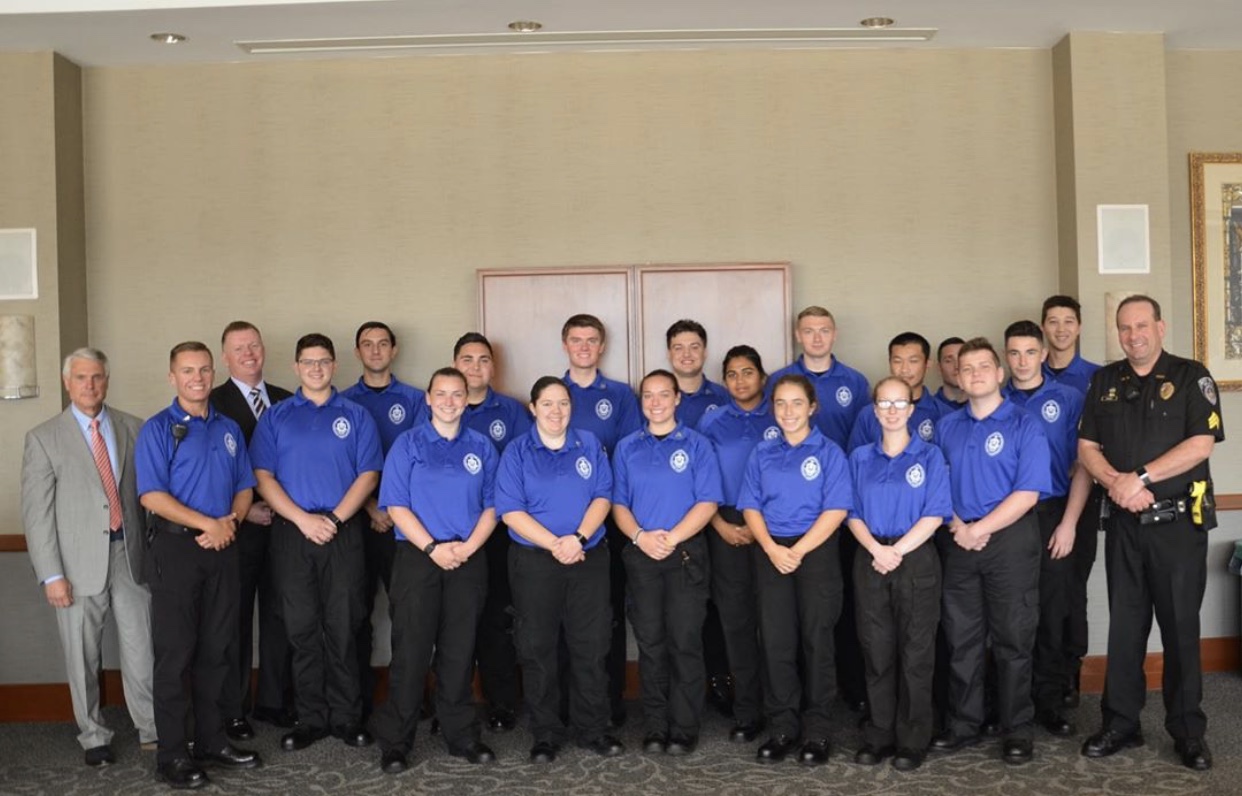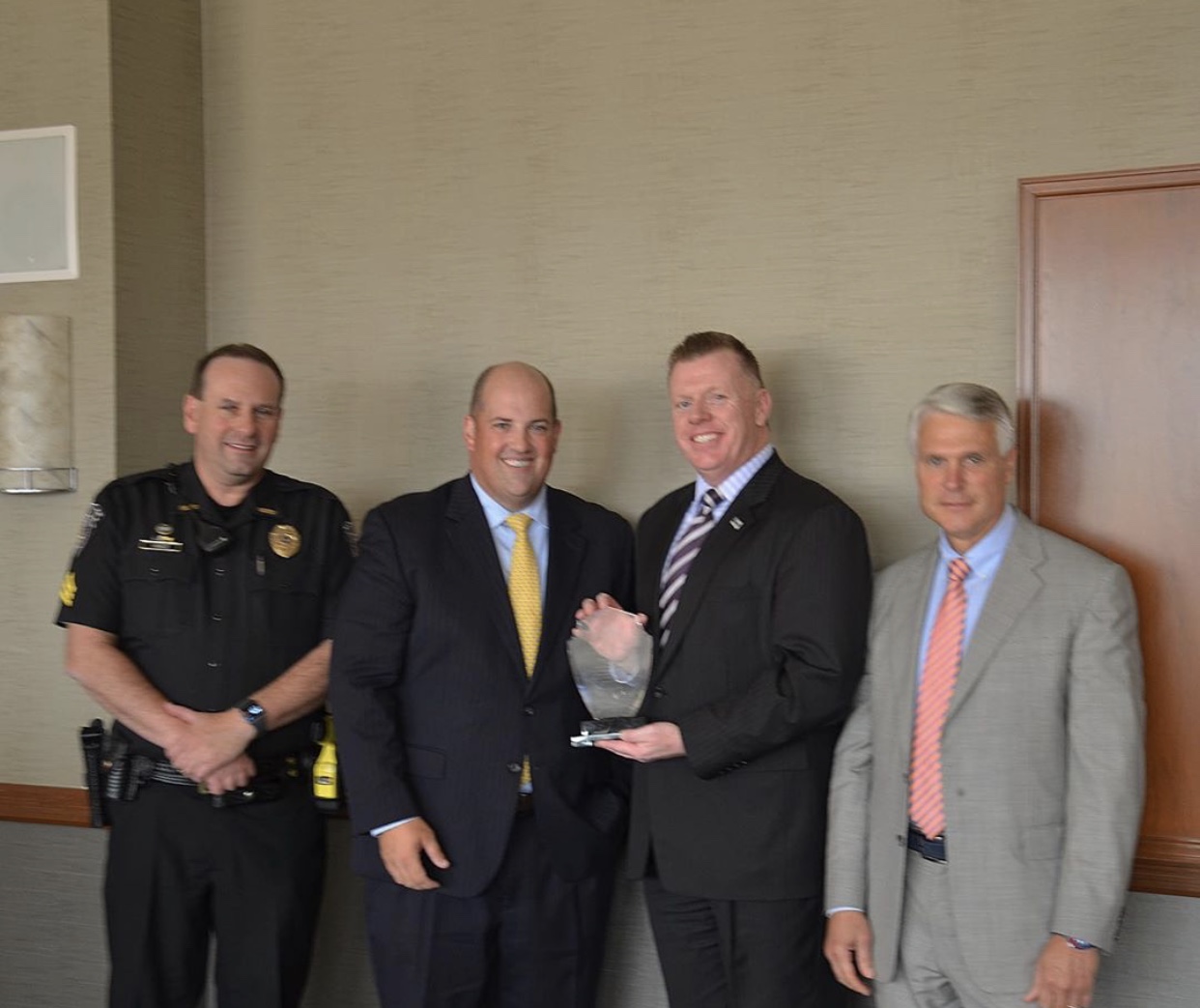How did you choose Scranton?
How did you choose Scranton?
The thing that really swayed me was when I went up there for an informal weekend visit, just to socialize. Everywhere I walked around, people would say hello to you. Whether it was students in school or people in the town, everybody said hello and looked you in the eye and smiled. I had the sense that when you were introduced to folks and they said ‘Hi, how are you?’ and ‘Nice to meet you,’ they meant it. That was really why I chose Scranton in the end.
So how about your time at Scranton? Can you talk about when you got here if you had a favorite course or professor?
My favorite professor (and hardest) was Dr. William Parente. He was extremely tough and brutally honest in the way he ran his classes and graded his work. I remember him fondly. I also remember the late Dr. Raymond Champagne. Also, somebody who had a very big impact on me was a gentleman named Professor Thomas Baker, who was in the criminal justice program. He was somebody you could go to and say, ‘Hey I’m thinking about pursuing this.’ He had grown up in law enforcement. He was kind of like a father figure.
Did that have any influence on whether to eventually go into the Secret Service?
Absolutely. I’ll say this. The Secret Service is a very selfless endeavor. I think you have to be somebody who is mindful of being of service to others in order to do this job. There is a corollary to the Jesuit tradition. You are educated in that regard while you’re at Scranton so there is no doubt that this was an influence.
"The transition has been fantastic. I’m highly reliant on the folks here at the agency. They’ve really helped me through."
You’ve worked for a lot of presidents. We live in a politically divided time. How do you stay nonpartisan in your position?
It’s a great question. Here’s one thing that I would like everybody to know about the Secret Service. Hopefully, it’s assumed. The Secret Service and everybody here at the Secret Service are willfully and deliberately agnostic when it comes to politics. We’re apolitical. We don’t subscribe to any ideology. Our commitment and our devotion are to the Constitution. And that’s what we swear an oath to. We swear an oath to defend the Constitution. We don’t swear an oath to the flag or the president. We swear an oath to the Constitution. Our prime directive is to ensure the continuity of the U.S. Constitution.
Could you have ever anticipated your path to the director of the Secret Service?
I really identified with the mission, and I really like the idea of having a job where you weren’t doing the same thing every day. You got to do a variety of different things. You got to travel a little bit, sometimes a whole lot. I liked the idea of carrying on a career of 20-25 years of doing that. Maybe not law enforcement in the traditional sense, but I wanted to serve as a law enforcement officer, operationally so to speak, throughout my career. But then I would end up, I guess, becoming the boss.
To answer your question, no, I never intended to or expected to be the director of the Secret Service.
Tell me about that moment you were named director and how that felt.
It was surreal. I was a little bit stunned. I’ll be honest with you, it was something where you have to check yourself a little bit. Luckily, one of the things we commit to here is our mission here at the Secret Service, which is pretty challenging. It’s a challenging lifestyle: Some people call it inconvenient. I would say what we commit to is actually wholly and completely unreasonable, yet all these people I work with commit to it anyway. So, in saying that, you wind up having very, very strong bonds with the people that you grow up here within the agency. Even though I was stunned when I got the word, I was obviously proud, humbled and honored. It was simply the support of the people I work with here that gave me the confidence to do this, and they continue to do that every day.
What’s the transition been like in your new role? And what're your goals?
The transition has been fantastic. I’m highly reliant on the folks here at the agency. They’ve really helped me through.
One of the things we’re getting ready for – we started at the end of the last campaign – we’re preparing ourselves for campaign 2020. It is a big lift for our agency. It’s pretty intensive. I think I speak for all agents, all officers and everybody else who works in the Secret Service when I say that when you’re going through it, you start to question your own life choices and why you would choose to do something like this. It’s pretty demanding, and at the end of it you look back and you say, ‘Wow, that’s one of the coolest things I’ve ever done in my life,’ and you can’t wait for the next one.
You just need a little bit of a break maybe?
Yes. What’s a break? We want to know here. [laughing]
I know you were a supervisor on presidential protection in 2005 when George W. was president, can you talk about the coordination involved?
I was fortunate enough to go to the president’s detail. I was selected to do that in the middle to the end of 2000 so President Clinton was in office, but by the time I showed up and finished the specialized training for that, it was already when President Bush was inaugurated.
I got to be the lead advance for President Bush’s trip to Moscow for the commemoration of the 60th anniversary of VE Day (or the end of WWII in Europe). Also, the year after, when I got promoted, I served as the lead advance for President Bush’s visit, and actually the first visit by any president, to Afghanistan in early 2006. As probably makes sense, that was a very, very close hold type of thing that we had to do discreetly and covertly, so to speak, for a number of weeks and months leading up to it.
You do only five to six years there. A lot of us would like to stay, but it’s by design that we cycle people off because – no two ways about it – there is a very clear burnout rate.
Were you burnt out?
I remember in 2005 when I was doing all that advance work. At the end of 2005, I walked into the pantry in our house. My wife and I have four kids now but had only two very little folks then. I walked into the pantry, and on a calendar on the wall was a whole bunch of numbers and symbols. At the bottom was a number. And the number, I forget exactly, but I want to say it was something like 240. I asked my wife, ‘What does this mean?’ and she couldn’t believe that I couldn’t decipher it. Basically, she was just tracking all the days I was away. Two hundred forty was the number of nights I was away that year when she was at home taking care of two toddlers.
How did you respond to that?
I think I took them out to dinner. I don’t remember. It kind of illustrates that regardless of what you do in the Secret Service, it is wholly and completely a family affair. None of us, whether we’re agents or officers, could endure the rigors or the sacrifice in this job without the full and active support of our loved ones. Sometimes, when you’re feeling sorry for yourself, maybe out there, standing post at midnight somewhere in the hinterlands, you have to remind yourself that there’s somebody back home taking care of things so you can answer this calling. I really do feel, for someone to come on this job, stay here, and do a full career, there’s absolutely a vocational element.
You have to be called to do this. There are many easier jobs. And there’s no doubt that everybody in the Secret Service can go find another job that is probably not as demanding. They’d probably get paid more. They can probably be assured that they’re going to have their Saturdays and Sundays off. And their boss can probably tell them that they’re going to be off on Christmas. And I can tell none of the 7,300 people that work for me whether or not they’re working this Christmas. In order for people to commit themselves, they’re answering a calling. There’s definitely like-mindedness among all of us here in the Secret Service. That’s why you come here, but, more importantly, that’s why you stay here.
"Regardless of what you do in the Secret Service, it is wholly and completely a family affair."
Tell me more about the family.
My wife and I are both from New Jersey. My wife’s an attorney. Just to illustrate the point that I made earlier, there’s no doubt that her career track and her earning power were stronger than mine, but … in order to support me to answer this calling and follow this thing that I want to do here in the Secret Service, ultimately, she chose to give up her career as an attorney to raise our four kids. How do you thank somebody for doing that?
Maybe it helps that you got to the top – to the pinnacle of your career – to the director position?
Well, I’m not the director at home, I can tell you that.
How did attending Scranton influence or impact your career or life?
I’m probably guilty for having taken for granted just how fortunate I was to be in a place like Scranton, where not just the folks that worked there -- the professors, the staff -- but also the students were just so inclusive. They kind of set the standard. I look back and I realize that every time that I don’t comport myself in the way that I should, I’m not only letting myself down, I’m also letting the people I model myself after down. Many of those people certainly were at Scranton. That includes all the people I lived with at 1215 Linden and all the people I came up with there at Scranton.
I think all that being said when I talk about the Jesuit tradition, I have to imagine that that influenced me in pursuing this line of work. There are a lot of books out there nowadays that say what you do is not really as important as why you do it. I think that’s certainly true.






